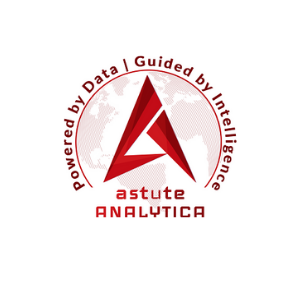Blockchain
Exploring the Future of Gambling: GamingTech CEE Panel Unveils the Power of Web3, Blockchain, XR, VR, and AR

GamingTech CEE is around the corner, taking place on September 26-27, 2023, at the prestigious Ritz Carlton Budapest. The leading event for exploring the latest tech innovations in the gaming industry within the Central and Eastern European (CEE) region promises to be a game-changer, featuring panel discussions on a wide range of topics.
The ultimate destination for industry professionals, innovators and enthusiasts, GamingTech CEE – brought to you by the #hipthers – offers a unique opportunity to gain a deeper insight into how the gaming industry is evolving within the region. With a focus on compliance, innovation, and networking, this event offers a platform for industry professionals and enthusiasts to stay ahead in the dynamic world of gaming technology.
“The Intersection of Gambling Industry with Web3/Blockchain/XR/VR/AR” panel discussion will take a closer look at the integration of innovative Web3 technologies into iGaming. Dean Rakic, Chief Scientist at Blockcontrol, will serve as the moderator, bringing together experts and innovators from the gambling industry and technology sectors. The panel aims to explore the transformative potential of Web3, blockchain, XR (Extended Reality), VR (Virtual Reality), and AR (Augmented Reality) in reshaping the future of gambling.
As technology continues to revolutionize the gambling landscape, understanding the synergies between the gambling industry and these cutting-edge technologies has become imperative. The panel will delve into key topics, including:
- Web3 and decentralized gambling platforms: Exploring how Web3 and decentralized technologies can disrupt traditional gambling models, increase transparency, and enhance player trust through decentralized platforms and smart contracts.
- Blockchain in gambling: Discussing the applications of blockchain technology in the gambling industry, including secure transactions, provably fair gaming, identity verification, and transparent record-keeping. Exploring the potential benefits and challenges of blockchain adoption.
- XR, VR, and AR in immersive gambling experiences: Examining how Extended Reality (XR), Virtual Reality (VR), and Augmented Reality (AR) can create immersive gambling experiences, enhance user engagement, and blur the boundaries between physical and virtual gambling environments.
- Tokenization and digital assets: Exploring the integration of digital assets and cryptocurrencies in the gambling industry. Discussing the potential of tokenization for in-game assets, digital collectibles, and innovative reward systems.
- Responsible gambling and user experience: Addressing the ethical considerations and responsible gambling practices in the context of emerging technologies. Discussing how XR, VR, and AR can be leveraged to promote responsible gambling behavior and create engaging, safe, and immersive user experiences.
- Regulatory challenges and opportunities: Analyzing the regulatory landscape and potential challenges associated with the adoption of emerging technologies in the gambling industry. Exploring the opportunities for collaboration between regulators, technology providers, and gambling operators to foster responsible innovation.
- Future trends and opportunities: Gaining insights into the future trends and opportunities at the intersection of Web3, blockchain, XR, VR, and AR in the gambling industry. Discussing the potential impact of these technologies on user acquisition, player engagement, and market expansion.
Panelists
- Arthur Stadler – Attorney and Founding partner at STADLER VÖLKEL Attorneys at Law
- Daniel Gunba – Founder / CEO of TRIIONFT
- Sönke Kirchhof – CEO at INVR.SPACE
- Manuel Messner – CEO at Mazing GmbH
Register to the event
GamingTech CEE is more than just a conference; it’s a platform for networking, knowledge sharing, and fostering collaborations in the gaming technology sector. Attendees will have the chance to connect with industry leaders, explore cutting-edge innovations, and gain a competitive edge in this rapidly evolving industry.
Registration is still open for those interested in joining this and other enlightening discussions and being part of the GamingTech CEE experience. Register for the conference now or find out more about GamingTech CEE on the official website.
Blockchain
Simplify Labs Expands Educational Outreach with Monthly Crypto Webinars
Blockchain
Blocks & Headlines: Today in Blockchain – May 21, 2025

In an era defined by rapid innovation and regulatory shifts, today’s blockchain briefing spotlights five pivotal developments: enterprise-grade data integration, municipal crypto pilots, state-level policy hearings, AI-powered token growth, and secure communications on a public ledger. Across these stories, three key trends emerge:
-
Enterprise Adoption & Data Integration
-
Government Experimentation & Oversight
-
AI & Security Innovations in Crypto
Below, we dissect each story’s essence, unpack its broader implications, and offer opinion-driven insight for Web3 stakeholders.
1. Space and Time Joins Forces with Microsoft Fabric
Source: Chainwire / The Defiant
On May 20, 2025, Space and Time Labs (SXT)—a zero-knowledge data platform backed by Microsoft’s M12 Ventures—announced integration of its multichain index (Bitcoin, Sui, Ethereum) into Microsoft Fabric’s OneLake environment. This partnership delivers real-time, verifiable blockchain data directly within Azure, enabling developers and enterprises to build data-driven Web3 and AI applications without custom pipelines.
Opinion: Embedding verifiable on-chain data into mainstream analytics tools marks a watershed moment. As traditional enterprises crave decentralized insights, Fabric’s native access to SXT’s ZK-proven data could accelerate blockchain analytics, foster hybrid cloud-Web3 solutions, and reduce vendor lock-in. Expect more legacy tech giants to pursue similar alliances.
2. New York City Eyes Crypto for Taxes & Records
Source: DL News
Mayor Eric Adams revealed plans to form a Digital Assets Advisory Council to explore crypto-based payments for municipal services, including taxes, birth/death certificates, and land records. While specifics remain under wraps, Adams highlighted zero-knowledge proofs as a privacy-preserving tool for public documentation on distributed ledgers.
Opinion: New York’s initiative signals growing municipal appetite for blockchain beyond investments. By potentially accepting tax payments in crypto and securing vital records on-chain, NYC could pioneer use cases that blend transparency with privacy. However, pilot programs must rigorously address volatility, regulatory compliance, and digital inclusion to avoid disenfranchising underserved communities.
3. Wyoming Committee Explores Blockchain, AI & Right-to-Repair
Source: Wyoming Public Media
During its first interim meeting (May 14–15, Jackson Hole), Wyoming’s Select Committee on Blockchain, Financial Technology and Digital Innovation reviewed the state’s proposed Wyoming Stable Token—tethered 1:1 to USD—and examined AI governance and right-to-repair legislation. The Stable Token Commission anticipates a July 4 alpha launch, while lawmakers debated CBDC distinctions, tokenized real-world assets, and consumer repair rights.
Opinion: Wyoming continues to cement its reputation as a blockchain haven. Explicit carve-outs distinguishing stablecoins from CBDCs, coupled with regulatory sandboxes for AI and repair laws, underscore a holistic approach to innovation. Other states should monitor Wyoming’s alpha testing outcomes to inform balanced policy frameworks that nurture Web3 while safeguarding consumer interests.
4. AI Tokens Surge in Crypto’s New Tango
Source: The Economic Times
Himanshi Lohchab reports that AI-centric utility tokens—built to autonomously execute services like compute renting (Render), predictive analytics (SingularityNET), and data marketplaces (Ocean Protocol)—have seen market caps soar from $2.7 billion to nearly $30 billion within a year. Key players include Near Protocol’s AI modules, ICP, The Graph, and emerging AI agents that generate revenue per usage. Institutional interest from Grayscale, BlackRock, and Fidelity further validates the trend.
Opinion: The AI-blockchain convergence is no fleeting fad. AI tokens promise programmable revenue streams and decentralized toolchains, but they also introduce autonomous risk vectors—buggy smart contracts, accountability gaps, and regulatory ambiguity. Security audits, standardized interoperability protocols, and clear legal frameworks will be crucial to sustain investor confidence.
5. BSV Association Selects Binarii Labs for Secure Communications
Source: CoinGeek (via PRNewswire)
The BSV Association has designated Binarii Labs to implement BinariiDSM, an encrypted file exchange and messaging suite that logs proofs of record on the BSV blockchain. This integration ensures immutable audit trails, data resilience, and end-to-end confidentiality for enterprises seeking verifiable trust without centralized intermediaries.
Opinion: As data privacy regulations tighten globally, blockchain-anchored communication platforms like BinariiDSM offer a compelling alternative to legacy VPNs and secure email. By immutably recording metadata on-chain, organizations can demonstrate compliance, simplify audits, and deter insider threats. Look for BSV’s secure-messaging model to inspire similar offerings on other smart-contract platforms.
Conclusion: Navigating a Dynamic Blockchain Frontier
Today’s stories reaffirm that blockchain is no longer an experimental niche—it’s permeating analytics, public services, legislative agendas, tokenomics, and secure communications. To thrive:
-
Forge Strategic Alliances: Enterprises should partner with ZK and data-fabric innovators to embed blockchain insights into their analytics stacks.
-
Pilot Pragmatically: Municipalities must balance visionary crypto use cases with compliance, volatility management, and equitable access.
-
Craft Balanced Policy: States can emulate Wyoming’s sandbox approach—distinguishing stablecoins from CBDCs, while addressing AI and repair rights.
-
Secure the Autonomous Agent Era: As AI tokens multiply, enforce rigorous security audits and interoperability standards.
-
Leverage On-Chain Trust: Consider blockchain-anchored communications for immutable audit trails and enhanced data resilience.
By embracing these actions, organizations and policymakers can harness blockchain’s transformative power while mitigating emerging risks.
The post Blocks & Headlines: Today in Blockchain – May 21, 2025 appeared first on News, Events, Advertising Options.
Blockchain
Hair Transplant Market To Worth Over US$ 41.01 Billion By 2033 | Astute Analytica
-

 Blockchain7 days ago
Blockchain7 days agoBDM Digital Initiates Promising Dialogue with Stanford Law School in Pursuit of Strategic Partnerships in Silicon Valley
-

 Blockchain7 days ago
Blockchain7 days agoBlocks & Headlines: Today in Blockchain – May 15, 2025 (BTC’s Push, Pi Network Fund, Stablecoin Levers, JPM Pilot, OKX × Man City)
-
Blockchain7 days ago
Wen Acquisition Corp Announces the Pricing of $261,000,000 Initial Public Offering
-
Blockchain6 days ago
Mercurity Fintech’s Subsidiary Grows Cross-Border Business Advisory Services with New Asia-Pacific Healthcare Client Engagement
-

 Blockchain6 days ago
Blockchain6 days agoSaudi Arabia Loan Aggregator Market Report 2025: Retail Digital Payments Hit 70% as Tech Adoption Transforms Saudi Financial Services – Competition, Forecast & Opportunities to 2030
-

 Blockchain6 days ago
Blockchain6 days agoBlocks & Headlines: Today in Blockchain – May 16, 2025
-

 Blockchain Press Releases3 days ago
Blockchain Press Releases3 days agoCoinW Unveils Industry-First Futures Protection Program:Instant Refunds Designed to Safeguard Traders
-

 Blockchain3 days ago
Blockchain3 days agoBlocks & Headlines: Today in Blockchain – May 19, 2025 | DoubleZero, Toobit, Story Protocol, Marco Polo, Argo Blockchain



































